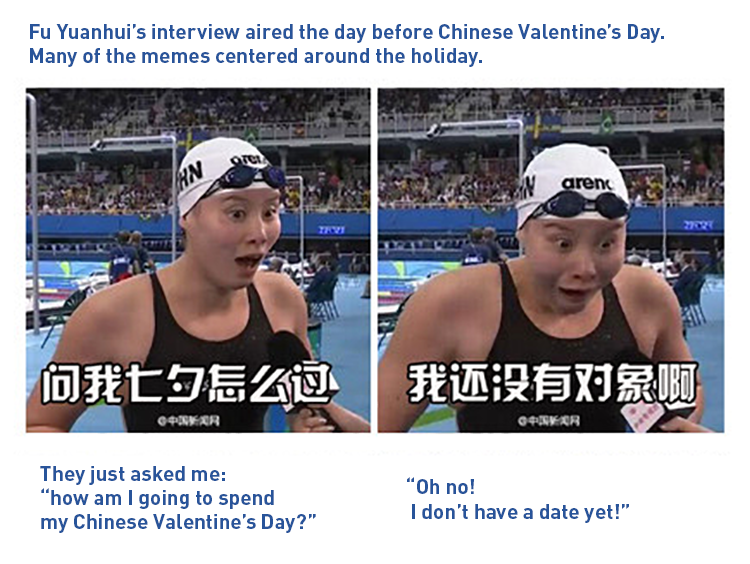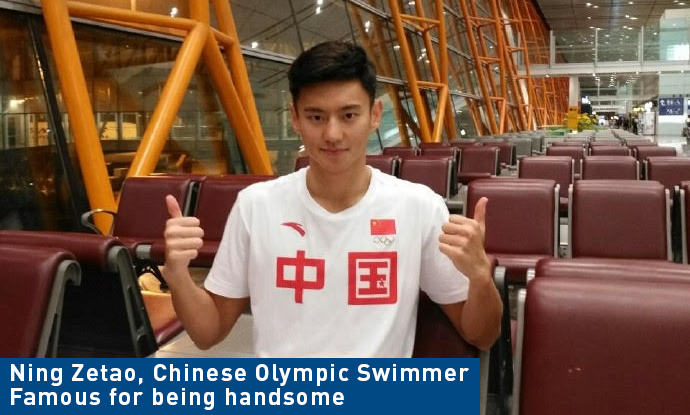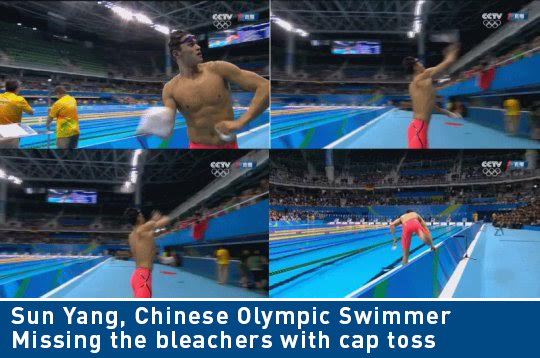How Social Media Changed the Games for China
And an Olympic Bronze Medalist Became an Unlikely National Icon

Article written by guest contributor, Wei Qiang.
Social media has allowed the Chinese individual to present a public persona that shrugs traditional expectations. This transformation was especially evident during the recent Olympic games in Rio de Janeiro when the Chinese National Olympic Swimming team caused an online sensation. This year, the team’s rising popularity owes just as much to its athletic talent as it does to the unique personalities of its members.
Traditionally, Chinese athletes were expected to win gold medals not just for their own honor but for the honor of their country as well. In past Olympics if an athlete failed to meet these expectations they would cry and apologize for falling behind causing the Chinese audience to feel a collective sense of humiliation alongside them. The pressure to win gold was so intense that winning became a burden. Liu Xiang won China’s first gold medal in men’s track and field in the 2004 Athens Olympics thrusting him into the national spotlight of fame and fortune as a symbol of a stronger China. Despite being considered a favorite to win again in Beijing and London, Xiang never competed in another Olympics. Instead he retired – citing an Achilles tendon injury – widely believed to have been an excuse to spare himself from potentially missing the gold and disappointing his fans and country.
This time around, a bronze medal winner became an unlikely national hero. Instead of beating world records, Chinese National Women’s Swimming Team member, Fu Yuanhui, went viral. In an interview just after the semifinal, the young swimmer was shocked when the reporter told her she got third place. With a hilarious facial expression she exclaimed, “OMG I was that fast! 58.95 seconds? I thought it was 59 seconds!”. When asked if she had any expectations for the upcoming final, instead of saying she would do her best to contribute to the national honor, which was the traditional canned Olympic interview response, she said that she held zero expectations. In fact, she stated she was already very satisfied with the performance, and that she had summoned all her “prehistoric powers” to achieve her success. Her creative choice of phrase, “prehistoric powers,” originates from ancient Chinese poems, and refers to the tremendous energy used to create the cosmos during prehistoric times. After the interview, her quirky phrase was immediately sealed in the online lexicon of Chinese internet speech.

Her video and image lit up the Chinese social media scene: Sina Weibo, Youku.com, and WeChat1. Before the interview she had 56,000 Weibo fans; after the interview she surpassed 6 million fans. For comparison, the four-time U.S. Olympic swimmer, Michael Phelps, has a little over 2 million Twitter followers. Her popularity increased through the echo chamber of social media. She became a special breed of Chinese meme known as biaoqing. Biaoqing loosely translated to English means “facial expression”. A biaoqing is usually composed of an image of a face and a caption, where the caption directly tells what the users want to say and the face indicates the tone – usually playful or sarcastic. Captions are often from daily speech, while faces are mostly from classic TV series, animation, or celebrities. This fun mode of expression is favored by young Chinese cyber citizens for the instant vividness and subtlety it can convey. Yuanhui’s amusing facial expressions were perfect for the biaoqing meme. In fact, she has become so famous that she has attracted the attention of international media. NPR, Daily Mail, Huffington Post, CNN and NBC all reported on her “winning the public’s heart.”

While Fu Yuanhui’s instant fame may seem like a fluke, the swimmer was deeply involved in social media before she became a meme. She once mentioned in her Sina Weibo that, life is short, so we must be our authentic selves. Despite being a part of the National Swimming Team, a “serious” official organization, occupied by a tight training schedule, Yuanhui still embodies a strong sense of individualism with her finger on the pulse of current pop culture. She knows what is hot online, and also frequently posts her training life on her Sina Weibo.
Ning Zetao, Yuanhui’s 23-year-old National Swimming Teammate, is also a cyber celebrity with more than 7 million Weibo fans. Prior to the Olympics, he had already amassed this following primarily due to his good looks. Whenever he posts anything on Weibo, or there is an article about him online, there are always countless women commenting “husband you are the best!” He is a hardworking swimmer and performed well in previous competitions, so the whole country had high hopes for him leading up to the Rio games. However, he came back without a single medal. Instead of collective tears and humiliation, Chinese audiences remained proud of Zetao. His social media presence allowed him to be viewed as more than a medal earning machine. His Weibo posts are forwarded hundreds of thousands of times. His charming photos have become another source of biaoqing. Thanks to the Internet, people see Zetao as a complete character with personality.

Sun Yang is another example of how public mindset towards Olympic athletes has been influenced by increasing Internet penetration. After winning first place in men’s 200 freestyle, he attempted to look cool by throwing his swimming cap into the audience. However, the cap missed the bleachers and flopped directly into the pool. He abashedly dove back into the pool, retrieved the cap, and threw it a second time. Following the incident, scores of people jokingly commented on his Weibo timeline things like, “thank god you are not a goalkeeper.” His 31 million Weibo fans care more about his little cute embarrassment than the gold medal he won.

These athletes are young. Yuanhui is 20, Zetao 23, and Yang 24. They have grown up with a generation of Chinese people who have benefitted from the development of the Internet. They chat with each other intensely, share their life moments through mobile apps like WeChat and social networks like Sina Weibo. They talk about the intense pressure to win gold that China places on its athletes, and how this has deviated from the true spirit of the games. More and more, they absorb information and understand the outside world through Internet channels. They are the future of China. And so is the Internet.
Now it seems the whole country has adopted an easy going attitude toward the Olympics. China has already proven it can win gold medals, the amazing economic progress it has made outside the Olympics has done far more to boost national confidence than medals ever could. Through relaxing its obsession with the official medal count, people have started to simply enjoy the games and all that comes with them: the sweet kiss from national men’s Ping Pong team coach Liu Guoliang to his team member Ma Long, the proposal from National Men’s Diving team member Qin Kai to his Women’s Diving teammate He Zi. They are all among top 10 hot topics on Sina Weibo.
In Rio, China finished third in the overall medal ranking. Chinese people have found plenty of reason to celebrate that. They are already on the world stage. They have already cemented their place at the top level. Now they can just sit back, enjoy the entertainment, and feel a huge pride in their athletics, personal dreams, and technology.
- Percent of KWEB net assets of holdings mentioned above as of 6/30/2016: SINA CORP: 4.71%, Youku.com is a service of Alibaba: 9.69%, WeChat is a service of Tencent: 10.97%. The Fund's holdings are subject to change.

















